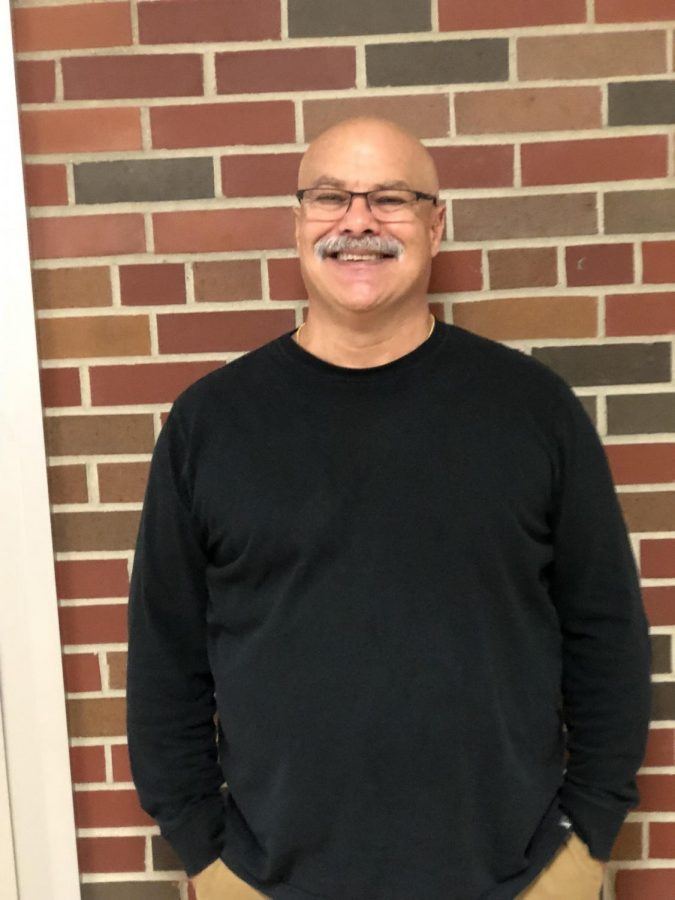Ending the ‘truant officer’ stereotype Brieloff approaches truancy with empathy
Every year, over 1.2 million students drop out of high school in the United States. That is one student every 26 seconds, or 7,000 American high schoolers a day. George Brieloff, Pioneer’s Access and Opportunity Advocate, is trying to change that.
“It is a real interest of mine to make an impact on kids’ lives,” Brieloff says. “We’ve even changed our title from Truancy Officer to Access and Opportunity Advocate because we ’re not about chasing kids. What we’re trying to do is remove barriers for kids who are trying to get to school.”
Brieloff, who worked in a juvenile detention center for fifteen years and as a probation officer in juvenile court for ten years, was retired for about six years when he decided he wasn’t done helping kids. So, he came back to work for the Ann Arbor Public Schools in January of 2017 and now oversees 16 schools, including Pioneer, on the west side of the city. His partner, Jason Gold, oversees 16 as well on Ann Arbor’s east side. They both cover Tappan and Pathways.
One of Brieloff’s immediate goals is to dispel the stereotype of a truancy officer arresting children and parents after too many school absences. “I had a parent come into a meeting last spring, put her purse down on the table and say, ‘Just put the warrant on the desk, cuff me and let’s go.’ She thought we were there to arrest her,” Brieloff recalled. “So, I told her, ‘No, you’ve got it all wrong, we just want to talk to you.’” He emphasizes there is nothing punitive about his department’s process, and they do not want to take families to court because that is often not the best solution.
In fact, Brieloff says many obstacles students face require helping the family find resources, not penalizing them. Some of these common problems include not having dependable transportation, chronic health issues, a language barrier, financial struggles, or mental and emotional issues like anxiety or depression. “There are a million truancy cases, and no two are the same. The barriers some of these kids face are really unfortunate,” says Brieloff.
So, how does Brieloff help remove some of the obstacles that keep kids from attending school? “I worked with one young man who lived in Ypsilanti. His family had no electricity in the middle of winter, so he had to take his siblings down to a local shelter every evening to keep them warm,” recalls Brieloff. Once he was at the shelter, however, this boy could not get to school because he couldn’t afford to take the city bus in the morning. “So, we were able to talk to the city, get their heat turned back on, and get this young man a free bus pass. With these problems solved, he made it to school regularly and he will be graduating on time this year,” says Brieloff.
It is experiences like this that give Brieloff faith in his cause. “If we can get kids and their parents at a table with an administrator or counselor, we can usually figure things out together and be successful,” he says. However, not all stories end as well as the boy from Ypsilanti. “Sometimes you give a kid a bus pass and he still doesn’t come to school. We try to tell kids they’re limiting their options by not getting an education, and some understand that, but some don’t,” says Brieloff.
Which is why spreading awareness and getting to kids before they become chronically truant in another of Brieloff’s primary goals. “We want to communicate with all the administrators in the district, we’re trying to get around and visit all thirty-two schools,” he says. “However, our message doesn’t always get down to teachers and the intervention specialists, and that is something we are trying to fix,” says Brieloff, who believes if a trusted adult can get involved earlier, these kids will have multiple layers of support. “If kids know about the truancy protocol, they can be proactive in fixing their attendance by talking to their counselor or their teacher first. Then my partner and I are the safety net,” says Brieloff.


